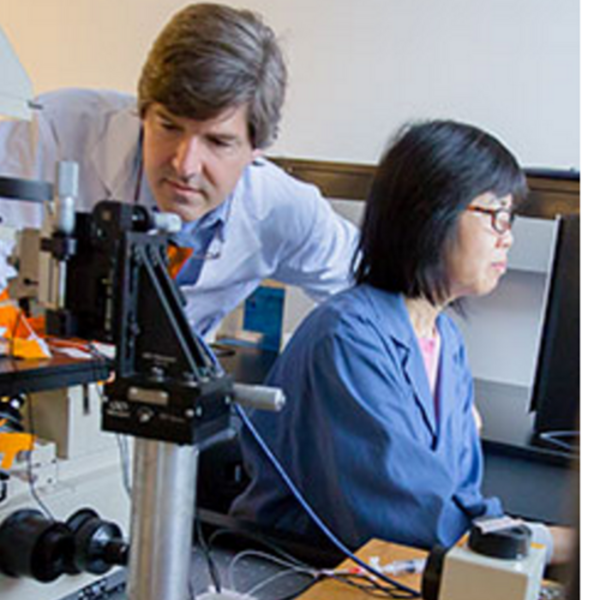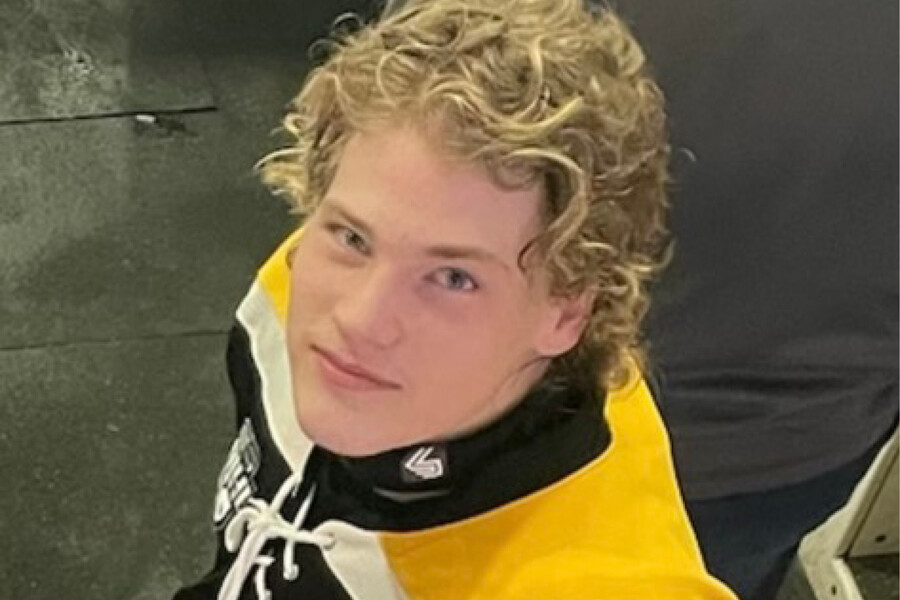Mobile Menu
- Education
- Research
-
Students
- High School Outreach
- Undergraduate & Beyond: Community of Support
- Current Students
- Faculty & Staff
- Alumni
- News & Events
- Giving
- About

On Saturday August 3rd, Jesse Walker and a team of friends, family, and community members came together to run 66km in memory of the late Tyson Downs, and to raise money for innovative research at the University of Toronto’s Temerty Faculty of Medicine into devastating genetic heart conditions.
A gifted athlete who played on the Kitchener-Waterloo Siskins hockey team and who excelled academically at Owen Sound District Secondary School, the seemingly healthy Tyson passed away suddenly in 2023 at only 18 years old. His grieving family would soon learn Tyson had inherited genetic mutations linked to dangerous heart rhythms.
The run is an annual tradition for Jesse, aged 19, himself a survivor of brain cancer. Each year since 2020 Jesse picks an event – from half-marathons to full triathlons – to raise money for childhood cancer and to demonstrate to children living with the condition that their diagnosis won’t hold them back. In four years, he has raised almost $100,000 for cancer research.
This year, Jesse is dedicating the 66km relay run to support research into inherited heart arrhythmias in Tyson’s memory. The moniker “66km for #66” is a nod to Tyson’s number on the Siskins hockey team.
“He was so loved by our community,” says Jesse. “When I was sick, Tyson and his family were one of the first people to visit me in the hospital, that’s just the kind of people they are. Planning this run is my way of giving back.”
Tyson was a prominent athlete, playing both competitive lacrosse and hockey. But what was most notable about him, explains Jesse, was his appreciation for the small things in life – like a beautiful summer day or an hour spent with friends.
After high school, Tyson was planning to continue playing for the Jr. B Waterloo Siskins hockey team and to study civil engineering at Conestoga College.
“He loved to be challenged as a kid, if he wasn’t good at something he never quit until he was,” says Tyson’s mom, Diana Downs. “He was kind, thoughtful and thankful — he always appreciated the little things.”
After the family learned Tyson likely passed away from a heart arrhythmia caused by an inherited genetic mutation, Diana and other family members underwent genetic testing — with several discovering they have similar mutations.
“So many people live with heart arrhythmias and inherited heart conditions and don’t ever know it,” says Diana. “No one in our family showed any symptoms.”
The family is now undergoing preventative treatment in Toronto General Hospital’s Inherited Arrhythmia and Cardiomyopathy Program. Michael Gollob, a professor of cardiology and physiology at Temerty Medicine, serves as the program’s research director.

“Until recent years, the cause of sudden, dangerous arrhythmias in otherwise healthy, young individuals has been a mystery,” Gollob explains. “We now know that many of these conditions are caused by genetic abnormalities which impact the heart’s electrical function — leading to sudden, erratic electrical activity of the heart that can cause cardiac arrest.”
The Gollob Lab is uncovering the genetic causes behind arrhythmia conditions by analyzing the DNA of healthy individuals alongside that of patients who are susceptible to these conditions. The team has already made several important discoveries, including finding genes responsible for atrial fibrillation, Short QT Syndrome and Idiopathic Ventricular Fibrillation. Now incorporated in the clinical assessments of patients, these discoveries are allowing for early detection of risk, family screening and are helping prevent future fatalities.
“While we have achieved much progress, our work is far from over,” says Gollob, “Twenty years ago, we knew of less than 5 per cent of the genes that may cause these conditions. Right now, we can identify an underlying genetic cause in about 20 per cent of families we see in our clinic — leaving the remaining 80 per cent still searching for answers. Our focus is to identify all genetic predispositions.”
And ultimately, as Gollob explains, the team plans to leverage their genetic discoveries into the development of novel drug or gene therapies that can treat or even prevent future fatalities.
Gifts made in memory of Tyson Downs will help support these research efforts – with the goal of one day preventing future families from experiencing similar losses.
“Jesse is a warrior, a cancer survivor,” Diana says. “Tyson always admired Jesse’s strength. We are honoured Jesse choose to raise money toward Dr. Gollob’s research in memory of Tyson and are so grateful for him and everyone who will be participating in the run or supporting this cause. It means the world to us.”


